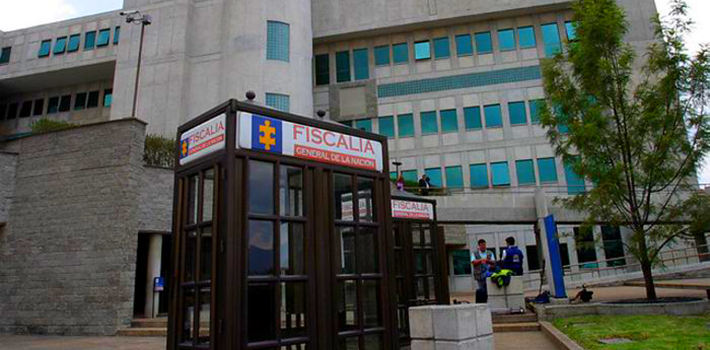
EspañolIn Colombia, public opinion seems to shift with each daily news cycle. However, if we took the time to carefully analyze certain events, we could learn a lot about many of the ongoing debates in our country.
For example, in my last column, I focused on the scandal involving Attorney General Eduardo Montealegre and the lucrative contracts his office has awarded certain friendly companies and individuals for consulting work.
The situation merits further discussion, and for this reason I would like to offer a few more things to consider:
First, it is important to note the role of academia in supporting the state. The contracts Montealegre signed that raised the most eyebrows were precisely those with renowned Colombian political scientist Natalia Springer, largely because of the exorbitant sum of money involved, the tasks she was assigned, and the questionable concealment of results.
Springer until recently served as dean of the Political Science and International Relations Department at Jorge Tadeo Lozano University. She has written several books about post-conflict Colombia, works as an analyst for a local radio station, and is a frequent contributor to Colombian daily El Tiempo.
A recurring question among classical liberals is why academics tend to favor statist, socialist policies. While I am not accusing Springer of being a Marxist, her pro-government bias is very clear in all of her speeches and papers.
One possible answer — which differs slightly from those posed by other thinkers, such as Friedrich Hayek or Robert Nozick — is that academics have become part of the social group that is favored by state intervention. This becomes more evident in countries where “experts” have emerged as the solution for every social ill.
Springer has no interest in questioning her own mistaken political beliefs, because it is precisely through state intervention that she can secure higher wages, rather than actually making any sort of real academic contributions.
But there’s more to it than that.
When scholars focus on procuring government contracts, they don’t have any incentive to examine their own beliefs, be more rigorous with their contributions, or to admit that their ideas are wrong. Worst of all, they do not advance any real academic learning.
The relationship between academia and the state is similar to that of any traditional crony-capitalist system, minus the minimal competition. These academics are only after taxpayer money, and yet they still arrogantly believe that without their studies and analyses the country would be worse off.
[adrotate group=”8″]
They couldn’t care less about the damage they inflict on the advancement of knowledge, academic inquiry, and the quality of education.
The second issue to consider involves how the state apparatus itself works. If such a scandal would have occurred in the private sector, any private company would have at least suspended the contracts in question. For example, when a big company’s poster boy becomes involved in any sort of scandal, the first measure is usually to cut all ties.
Of course, this is because private companies owe their existence and survival to consumers.
On the other hand, government, in general, owes its existence to the powerful groups to which it grants privileges, and how well it justifies this power. Contractors have no interest in terminating relations with the state, because they will keep benefiting from other contracts. This is how politics works.
Who justifies this entire arrangement? Academia, of course. Political scientists provide the intellectual basis for state expansion, excesses, and mistakes, while economists explain it’s all being done in the public’s interest and for the common good.
Both disciplines benefit from deceiving taxpayers, and this is how the cycle leads to more interventionism.
 Versión Español
Versión Español












